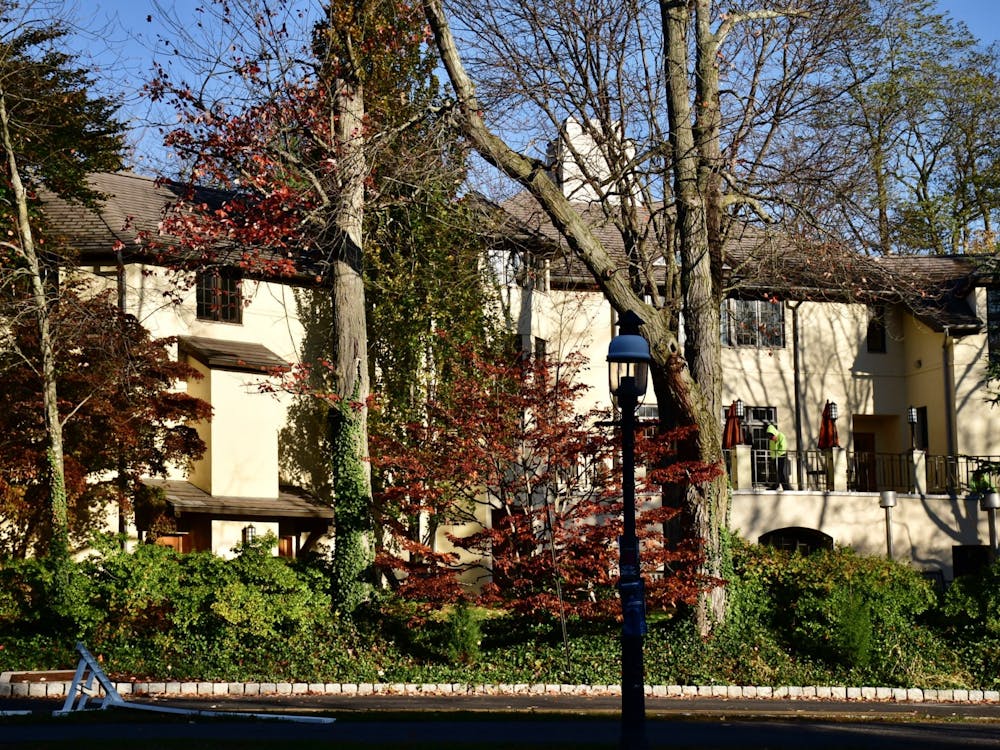“How was Africa?” many of my friends ask me.
I usually chuckle, in a way that half hates and half loves this question. There is no way my answer will do justice to the study abroad experience that I had last spring, when I attended the University of Cape Town in South Africa for a semester.
Just as you can’t simply ask a friend whose loved one recently died if they “are OK” after giving them a month to grieve, asking someone to broadly summarize their study abroad experience will lead to limp, compromised and superficial answers. However, out of courtesy or empathy or perhaps vague curiosity, the question must be asked.
So, no matter how difficult it may be to answer this question, my 10- to 15-second spiel goes something like this: “It was great. If you are in a position to study abroad, you definitely should. It was the best decision I have made in my Princeton career, and it was really refreshing to be away for a while.”
This is why I was saddened and shocked to read Bennett McIntosh’s column published on Sept. 16, “Study abroad sucked — you should try it!”
Reading Bennett’s column saddened me. It was painful to read of his messy and apathetic roommates, his feelings of isolation and his mental health problems. I was deeply upset that Bennett had to go through these things.
However, I was shocked that Bennett still chose to recommend studying abroad — and recommended his program in particular — given his experience.
Bennett describes his misery as “living in and beyond the learning edge,” and says “meaningful life is lived on the learning edge.”
I am skeptical of this. I don’t believe that meaningful life is lived on the learning edge. I believe that one should choose to challenge oneself, but not that this renders an experience more meaningful. I would be particularly hesitant to say that an experience that in part resulted in extreme feelings of isolation and deterioration of mental health is more meaningful than experiences that make us feel comfortable and at ease. I say this as someone who had considered dropping out of Princeton several times due to feelings of isolation. I even considered backing out of going abroad three days before my departure because of final-exam-induced hysteria, thinking that staying back might give me the chance to improve my grades or to work even harder than I already had — although I was in no mental state to be at the University at the time.
I can say that I do not feel myself to be any more enlightened by these traumatic experiences. They were not meaningful. They only pushed me to seek comfort by traveling to another country for a semester. In a sense, studying abroad was me entering my comfort zone, where I knew I would escape many of my friends’ conversations about internships and schoolwork, which often contributed to my high stress level.
I will highlight that my study abroad conditions were part of a highly different framework than Bennett’s. I roomed with a close friend, had a baseline network established by a housing liaison that the University uses in its Cape Town program, and was in a climate more temperate and cheery than that of Princeton (think San Francisco, Calif., Bay Area weather). Cape Town was familiar to me: I had been there before on a choir tour, and I was almost positive I would enjoy myself. At times, I chose to isolate myself. I did not join school organizations. I hung out with a few friends at a time. I chose instead to use my free time and the silence around me to immerse myself in my work and Capetonian culture.

Don’t get me wrong — I challenged myself in some ways, but not in terms of my mental and social health. I don’t see the challenges I took on — learning how to haggle with taxi drivers, entering a cage surrounded by sharks, taking my first vocal examination in French, navigating a school of close to 26,000 students — as similar to those that Bennett took on.
And so I recharged in a way that is quite opposite from Bennett’s prescription. First off, I did not live “beyond the learning edge.” I leaned into what was comfortable and known to me by going to a school that I knew wouldn’t be as rigorous or competitive, and a climate that wouldn’t be as harsh. By Bennett’s philosophy, my situation back at Princeton before I left — which was far from ideal and is similar to the way he felt at the University of Sussex — would have been an example of “meaningful life,” and I do not think this is the case.
Bennett also blames himself for “not trying to make friends.” Although I made friends, I don’t attribute this to my own actions, but rather to my housing situation. And I didn’t surround myself with friends in student groups. Instead, I chose to embrace solitude. While this can certainly go either way, and I am aware of the crippling effect that isolation can have on one’s mental health, it is important to understand that adopting an approach of extroversion is not critical to being happy while abroad.
Not all programs are the same. While I personally enjoyed Cape Town, it is not necessary to say you’re glad you went abroad in a show of unyielding optimism. Studying abroad was a blast, but perhaps it’s not for everyone.
Prianka Misra is a Wilson School major from from Castro Valley, Calif. She can be reached at pmisra@princeton.edu.







